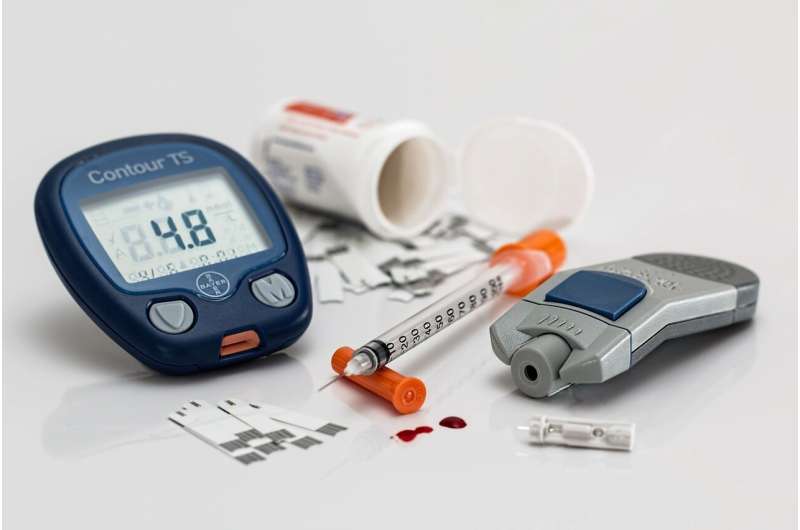Study suggests greater social support linked to lower diabetes distress

New research reveals a perceived lack of support from family and friends affects a patient's ability to manage type 2 diabetes, according to a study published in The Journal of the American Osteopathic Association. Among vulnerable populations, the necessary modifications to daily lifestyle can be difficult to maintain without adequate social support, leading to diabetes-related distress that derails treatment.
Researchers found that as perceived social support increased, diabetes-related distress decreased. The scales used are established clinical tools that measure perceived social support and perceived distress related to diabetes.
"Too often diabetes treatment is understood as a simple process of taking medications and monitoring blood sugar," says Clipper Young, PharmD, MPH, associate professor and a clinical pharmacist at Touro University California College of Osteopathic Medicine. "In reality, diabetes is a chronic condition that requires a great deal of mental and emotional energy, which when depleted, can impair care."
Diabetes-related mortality and morbidity are highest among people with lower socioeconomic status. Yet, few previous studies have investigated the nature of diabetes distress and social support pertaining to underserved, diverse populations with type 2 diabetes.
The study was conducted at Solano County Family Health Services Clinics in Vallejo and Fairfield, California. Nearly 75% of the 101 study participants, who were between 40 and 80 years of age, reported an annual income of less than $20,000.
Integrate the family and support system into diabetes management
"Strong social support supplements effective diabetes self-management behaviors which, in turn, may reduce the risks of diabetes-related hospitalization and death," says Young.
Given the significant role that social support has on diabetes-related distress, clinicians are highly encouraged to focus not only on providing medical care for people with diabetes but also on learning about their support system to optimize diabetes management outcomes and reduce the risk of diabetes-related complications.
"This research signals that our opening conversation with patients should include a robust assessment of diabetes-related distress and perceived social support," says Young. "If that support is inadequate, we must think about how we can build it into their diabetes care plan."
More information: Clipper F. Young et al, Associations Between Social Support and Diabetes-Related Distress in People With Type 2 Diabetes Mellitus, The Journal of the American Osteopathic Association (2020). DOI: 10.7556/jaoa.2020.145




















